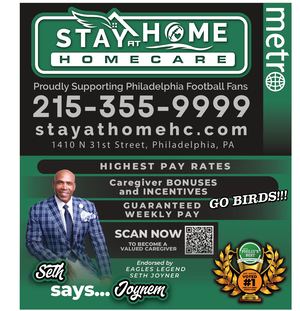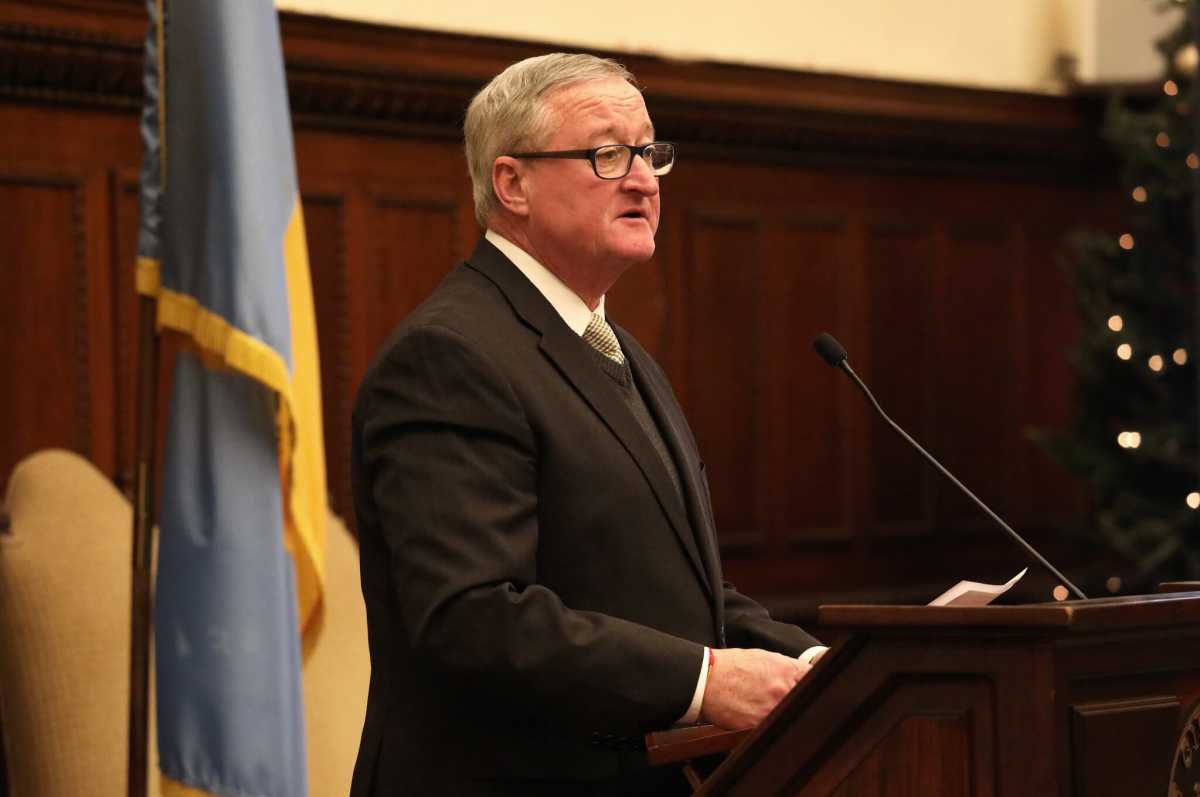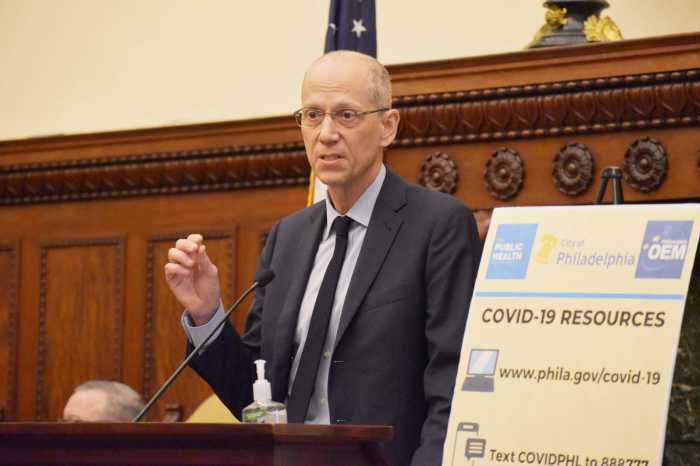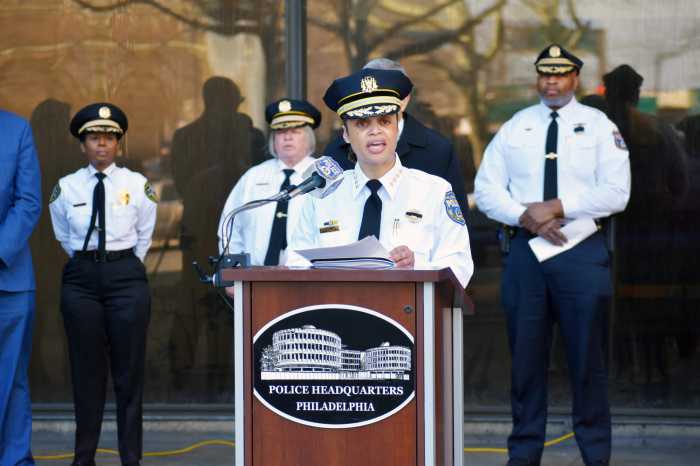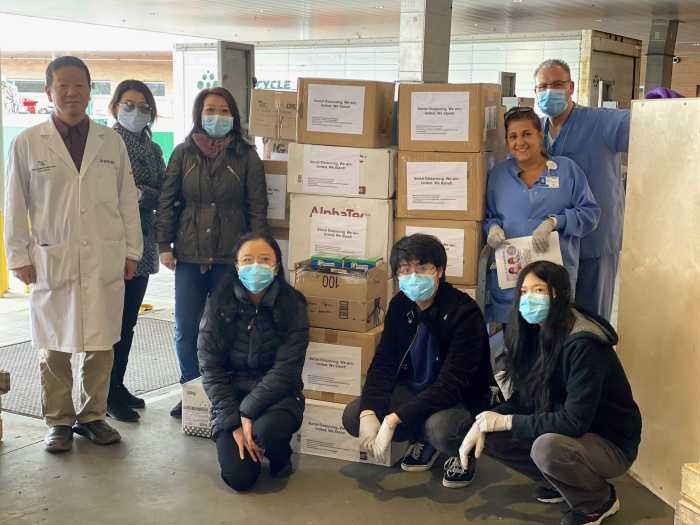Knowledge is power, and the best way to gain knowledge on the City of Philadelphia is to go right to the top. Every month, Metro will ask Mayor Jim Kenney questions pertaining to what is currently happening in the City of Brotherly Love—to get answers, give residents peace of mind and give each of us the power of being informed. This month, the column is continuing to focus on questions pertaining to the coronavirus pandemic. Here is what Kenney had to say about how Philadelphia is continuing to handle COVID-19.
The city awarded the first round of recipients of the COVID-19 Small Business Relief Fund recently, with the second round coming in the next few weeks. What can businesses expect from the second wave?
When it became clear that the COVID-19 crisis would be an unprecedented challenge for our local neighborhood businesses, it was critical to act quickly to provide support in the fastest, fairest and most efficient way possible.
The City’s Commerce Department, working with our partners at PIDC, quickly developed and launched the COVID-19 Small Business Relief Fund, which is distributing a total of $12.2 million dollars to local small businesses. The demand for the program was overwhelming from the moment the application launched, and we received a total of 7,300 applications.
The first round of grants and loans for applications received before March 31 were awarded to 1,145 small businesses to help them continue operations, maintain payroll obligations and preserve jobs impacted by the spread of COVID-19. Those businesses stretch across Philadelphia, with half located in low-to-moderate income census tracts, and 60 percent went to minority-owned businesses while 34 percent went to woman-owned businesses.
For the second round of awards for applications received after March 31, an additional 600 small businesses are expected to receive assistance, which will be decided over the next two weeks. Demand was so high that we limited the second round to businesses that had annual revenues of less than $500,000, with a grant award limit of up to $5,000 per business, so that we could spread our limited resources to as many businesses as possible. Providing a second round allowed more time for micro-business owners and those with language and technology barriers to apply.
You’ve mentioned that without help from the government, the city may experience cuts like never before and there’s a good chance that Philly may never return to normal. Could you elaborate more on what that means for Philadelphians?
We’ll have more to share later this week when we present a revised FY21 Budget to City Council on Friday, May 1. This process is very difficult and will lead to reductions in service in many areas. To revise the budget in a responsible way, we’re:
- drawing on our experience from the Great Recession. For example, we know that funding cuts for public safety can take years to recover from.
- using a racial equity lens during decision making to make sure cuts don’t disproportionately and negatively impact people of color.
- using the recent resident survey to inform what matters most to Philadelphians.
- focused on maintaining core services and Administration priorities including quality education, public safety and public health.
Philadelphians should know that we’re doing our best to leverage federal, state and philanthropic resources and advocating to our federal partners that cities and states need direct and flexible funding that takes into account the revenue lost during the economic shutdown. Without it, we all will be driven to make hard decisions that do not aid in economic recovery.
Has there been anything news-wise surrounding the coronavirus that people should be wary of? You gave us more insight before about scams but with everything changing rapidly, is there anything else people should be wary of or look out for?
Cyber Security and COVID-19 Scams: As an increasing number of people are spending time online during the COVID-19 health crisis, it is important to protect yourself from possible scams and other security issues. Here are some key guidelines to follow.
- Be cautious when opening digital attachments and links that you don’t recognize.
- Unusual attachments and links in an email can be infected with spyware which can obtain your personal data.
- If you receive something from an email address that you don’t recognize or causes alarm, look it up.
- Researching the email address, company name, phone number or address can help you identify if a scam has been reported by others.
There have been some reports that numbers are stabilizing and the curve is flattening. Although you are vocal about still keeping social distances, wearing a mask, washing hands and practicing precautions in place for the time being, is this a sign of some hope for the city? At this point in time, what do you think the next few weeks for Philadelphia will look like?
There’s really no way to tell what the next few weeks will look like. Health Commissioner Dr. Thomas Farley is hopeful that, because we’ve seen the number of reported cases stabilize over the last few days, that we might be seeing a peak. It’s possible that in a week or two, we will look back and see that the number of reported cases are dropping and this week really was the peak. It’s also possible that next week, we will see reported cases start to rise again. The best way to keep that from happening is to continue to follow the Health Department’s guidance: stay at home unless it’s absolutely necessary; if you have to go out, wear a mask and give plenty of space between yourself and others; wash your hands often. We will get to a peak at some point, and the more closely we follow the public health guidance, the sooner we will get there.
